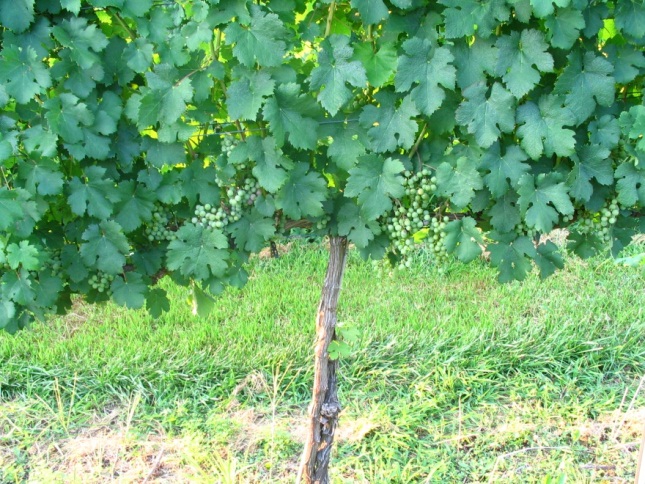Heat and drought affect vineyards
Heat and drought affect vineyards

Published on Jul. 23, 2012
Grapevines are deeply rooted and have a great knack for finding water in periods of drought; however, the 2012 drought has proved challenging for even the most tenacious vines.
“With the below-average rainfall and extremely high temperature spikes we’ve experienced here in Kentucky, we want to make sure grape growers monitor their vineyards for symptoms of water stress,” said Patsy Wilson, University of Kentucky College of Agriculture viticulturist. “This is especially true for newly established vineyards.”
Wilson said a mild degree of stress is not harmful, but severe stress can reduce crop levels and delay fruit ripening, potentially harming fruit quality and vine health in both current and subsequent vintages.
“Mild water stress occurring between bloom and veraison (the onset of ripening) may actually be beneficial,” she said. “However, a high level of water stress on vines between veraison and harvest is less desirable due to its negative impact on fruit ripening and potential vine quality.”
Water availability once ripening begins is important for the vines, and heavily cropped vines need more water than lightly cropped vines.
To recognize water stress, growers should examine their vineyards and realize that initial drought stress will appear in areas of the vineyard with restricted rooting depth and lower water-holding capacity. Suffering vines will potentially begin to lose leaves.
“Growers may also notice increased leaf temperature, wilting, leaf scorch and suppressed growth and death of terminals and tendrils,” Wilson said. “Simply walking through the vineyard and feeling large leaves that receive direct sunlight can be a quick and useful tool to identify drought stress; the leaves will feel warm.”
It will also be important for growers to carefully manage the canopy during periods of high temperatures. Growers need to be careful with late-season shoot positioning and leaf pulling and make sure they don’t suddenly expose fruit to direct sunlight; it could result in fruit burn.
While periods of drought and high heat can have negative impacts on vine performance, Wilson said excessive water stress from ripening to harvest may also lead to poor wine quality, including reduced aging potential.
For a more information, including photos of leaf damage, please visit http://www.uky.edu/Ag/Horticulture/vinewsv1i2.pdf
Horticulture


